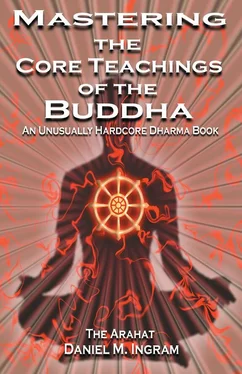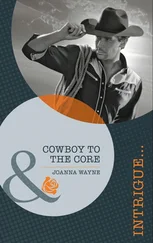Daniel Ingram - Mastering the Core Teachings of Buddha - An Unusually Hardcore Dharma Book
Здесь есть возможность читать онлайн «Daniel Ingram - Mastering the Core Teachings of Buddha - An Unusually Hardcore Dharma Book» весь текст электронной книги совершенно бесплатно (целиком полную версию без сокращений). В некоторых случаях можно слушать аудио, скачать через торрент в формате fb2 и присутствует краткое содержание. Год выпуска: 2009, ISBN: 2009, Издательство: Aeon Books, Жанр: Старинная литература, на русском языке. Описание произведения, (предисловие) а так же отзывы посетителей доступны на портале библиотеки ЛибКат.
- Название:Mastering the Core Teachings of Buddha - An Unusually Hardcore Dharma Book
- Автор:
- Издательство:Aeon Books
- Жанр:
- Год:2009
- ISBN:9781904658405
- Рейтинг книги:5 / 5. Голосов: 1
-
Избранное:Добавить в избранное
- Отзывы:
-
Ваша оценка:
- 100
- 1
- 2
- 3
- 4
- 5
Mastering the Core Teachings of Buddha - An Unusually Hardcore Dharma Book: краткое содержание, описание и аннотация
Предлагаем к чтению аннотацию, описание, краткое содержание или предисловие (зависит от того, что написал сам автор книги «Mastering the Core Teachings of Buddha - An Unusually Hardcore Dharma Book»). Если вы не нашли необходимую информацию о книге — напишите в комментариях, мы постараемся отыскать её.
Mastering the Core Teachings of Buddha - An Unusually Hardcore Dharma Book — читать онлайн бесплатно полную книгу (весь текст) целиком
Ниже представлен текст книги, разбитый по страницам. Система сохранения места последней прочитанной страницы, позволяет с удобством читать онлайн бесплатно книгу «Mastering the Core Teachings of Buddha - An Unusually Hardcore Dharma Book», без необходимости каждый раз заново искать на чём Вы остановились. Поставьте закладку, и сможете в любой момент перейти на страницу, на которой закончили чтение.
Интервал:
Закладка:
Buddhism vs. The Buddha
and in a way that will finally bring realization. A fancy hat or a good ritual can really inspire some people. That said, it is lucky that one of the fundamental “defilements” that drops away at first awakening is attachment to rites and rituals, i.e. Buddhism, ceremony, specific techniques, and religious and cultural trappings in general.
Unfortunately, the cultural inertia of the religions of Buddhism is hard to entirely circumvent.
It need not be, if the trappings can serve as “skillful means,” but I assert that many more people could be much more careful about what are fundamentally helpful teachings and what causes division, confusion, and sectarian arrogance. Those who aren’t careful about this are at least demonstrating in a roundabout way that they don’t know what the fundamental teachings are for themselves and have attained little wisdom.
96
14.CONTENT AND ULTIMATE REALITY *
There is too much content-centered Buddhism and content-
centered spirituality in general. It is not that content isn’t important, but it is only half of the picture, and the half we are already quite familiar with and typically stuck in. By content, I mean everything except determined effort to realize the full truth of the Three Characteristics of impermanence, suffering, and no-self, i.e. to realize ultimate reality.
Perhaps two illustrations will help.
The first odd phenomenon I have noticed is that when students of meditation gather together to discuss Buddhism, they almost never talk about actual meditation practices in depth and detail. They almost never talk about their diligent attempts to really understand these teachings in each moment. It is almost an unacknowledged taboo that nearly any politically correct topic under the Sun is acceptable as long as it doesn’t have to do with trying to master meditation techniques. While there are sporadic moments of “dharma combat” or heated discussion for the purpose of learning and sharing the dharma, even these tend to be mostly on the philosophy of all of this.
The second odd phenomenon I have noticed has occurred in
situations when one might suspect that there would not be this problem.
I have been to a fair number of retreats in the West, and these tend to have small group meetings. The dharma teachers have invariably been giving instructions that emphasize following the motion of the breath or the sensations of the feet, developing concentration on these objects, not being lost in thought, and giving precise attention to bare reality just as it is. They tend to use the phrase “moment to moment” often, which in my book means, “Fast!” This is all as it should be.
They tend to mention things like impermanence, suffering, and no-self, and tend to advocate trying to understand these qualities of all experience directly without the elaboration of thought. They mention time and time again that one should not be lost in the stories and tape loops of the mind. They may have traveled thousands of miles at great expense to help people understand these teachings that they themselves may have spent many years learning. For the hundreds of dollars in retreat fees, donations, and spent vacation time, the students will perhaps get three meetings with the teacher during a 10-day retreat and Content and Ultimate Reality
perhaps get fifteen to twenty precious minutes of time to talk to a real meditation master, assuming they are lucky enough to actually be sitting with one.
However, when some eight to ten students finally get a chance to meet with the teacher in a small group meeting, a brief chance to really learn what this teacher has to teach, what happens? Do they talk about their whole-hearted attempts at following the careful and skillful instructions of the teacher? Strangely, this only seems to happen on rare occasions.
I was at one of these small group meetings where everyone was talking about their neurotic stuff. In a moment of feeling like I might be able to actually add something useful, I said in a loud and exasperated voice, “The breath! Is anyone trying to notice the breath?” They just looked at me like I was out of my mind and went back to whining about their psychological crap. Here was a roomful of otherwise accomplished adults who somehow had been transformed into needy and pathetic children without any obvious ability to deal with their lives or follow very basic instructions. Beware of meditation cultures that consistently encourage this in people. It is a mark of something gone horribly wrong.
Stranger even than this, when students actually do talk about trying to follow the careful instructions of their meditation teachers, it can occasionally seem to be such a shock to teachers, such a violation of the unwritten taboos, and perhaps even such a threat to the hierarchy that they sometimes hardly seem to know how to handle it. In my more cynical moments, I have sometimes suspected that the quickest way to get worried looks from many modern Western meditation teachers is to talk about practice in a way that implies the attempt to actually master anything.
Most of the time students tend to whine about their relationships, their childhood, their neurotic thoughts, their screwed up lives, in short, content. I must say that I have great sympathy for these people. I really do. God knows we all have this sort of stuff to whine about; and, in the right context, whining about our stuff might be a very good idea. But two things are fairly clear: these people have spent too little time in therapy (or perhaps too much time in bad therapy), and somehow have not 98
Content and Ultimate Reality
heard one word of what the teacher has been talking about as regards insight practice.
Now, it is absolutely true that we all have our issues, pains, traumas, scars and quirks. We have to learn to deal with these somehow if we want to be happy and live the good life we all want to live. We have to find ways to deal with the content, to heal, to grow, to mature, and all of that, but we must also learn when to shift to seeing things on a completely different level. There is a time and a place for everything.
Imagine if you were an algebra teacher and you told your students to solve the homework in the back of chapter one. Instead, your students turn in long, rambling essays about the traumas of their childhood. How would you feel? Unfortunately, you would feel like many meditation teachers. Now, it is true that many dharma teachers have a great time helping people deal with their stuff, and some of these are even quite good at it. There are others that put up with having to play this role, but they would prefer to be teaching insight practices. Some teachers just can’t stand it when they spend lots of time giving careful instructions only to have very few people follow them, particularly when they know what an amazing opportunity for even deeper healing, increased wellbeing and clarity is being squandered by their students when they fail to really practice.
Sometimes people have actually heard just a bit of the teachings on impermanence, suffering and emptiness, but then proceed to talk about this in highly content-centered terms. They may say things like, “Oh, yes, I am impermanent and will die one day. This is awful and this thought causes me suffering. Truly, I feel empty inside.”
This is macroscopic, about grand yet crude concepts and ideas, and so is still squarely in the territory of philosophy and existentialism. This meditator not only needs to learn what insight practice actually is, but might also benefit from a bit more sunshine and exercise or perhaps even some of those new anti-depressants. A very small amount of such reflection can be of some limited benefit if the energy of the frustration is directed into practice. There are other types of reflection that might be much more skillful, but those are largely a topic for another day (see Jack Kornfield’s A Path with Heart or Christopher Titmuss’ Light on Enlightenment).
Читать дальшеИнтервал:
Закладка:
Похожие книги на «Mastering the Core Teachings of Buddha - An Unusually Hardcore Dharma Book»
Представляем Вашему вниманию похожие книги на «Mastering the Core Teachings of Buddha - An Unusually Hardcore Dharma Book» списком для выбора. Мы отобрали схожую по названию и смыслу литературу в надежде предоставить читателям больше вариантов отыскать новые, интересные, ещё непрочитанные произведения.
Обсуждение, отзывы о книге «Mastering the Core Teachings of Buddha - An Unusually Hardcore Dharma Book» и просто собственные мнения читателей. Оставьте ваши комментарии, напишите, что Вы думаете о произведении, его смысле или главных героях. Укажите что конкретно понравилось, а что нет, и почему Вы так считаете.












